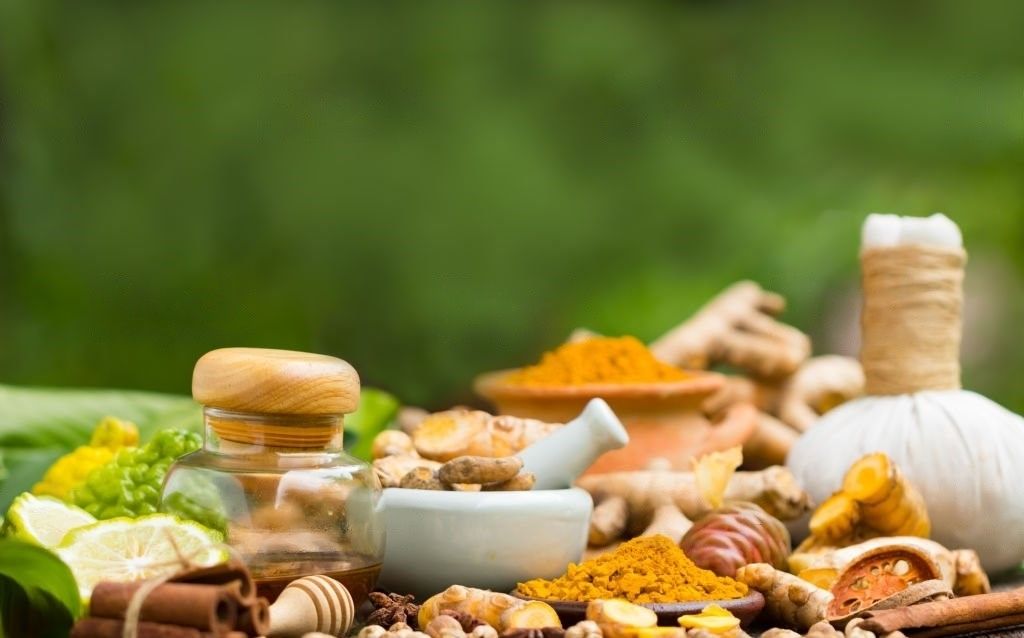Ayurvedic and Homeopathic Treatments for PCOS
While some Ayurvedic herbs demonstrate potential benefits in scientific studies for PCOS, the effectiveness of homeopathy remains substantiated.

Polycystic Ovary Syndrome (PCOS) is a common hormonal disorder among women of reproductive age. Conventional treatments often focus on managing individual concerns, such as infertility, hirsutism, acne, or obesity. However, many women turn to alternative medicine, such as Ayurveda and Homeopathy, in search of holistic remedies. This post explores what scientific evidence says about the effectiveness of these alternative therapies in treating PCOS.
Ayurvedic Treatments for PCOS
Ayurveda, a traditional system of medicine from India, treats diseases through a holistic approach that includes diet, physical activity, and herbal remedies.
1. Diet and Lifestyle Modifications
Ayurveda suggests that lifestyle modifications can help manage PCOS. A balanced diet, regular physical activity, and stress management can improve the overall health and well-being of women with PCOS.
2. Herbal Remedies
Herbal remedies are central to Ayurvedic treatments. Certain herbs, like Cinnamon, Fenugreek, and Shatavari have been studied for their potential benefits for PCOS.
For example, Cinnamon has shown promising results in improving menstrual cyclicity and insulin resistance in women with PCOS. Fenugreek has been found to improve glucose metabolism and reduce insulin resistance. Shatavari, a traditional Ayurvedic herb, has been studied for its potential benefits on reproductive health, although more research is needed in the context of PCOS.
Homeopathic Treatments for PCOS
Homeopathy, a system of alternative medicine developed in Germany, treats illnesses using highly diluted substances that cause symptoms similar to those of the disease itself. The goal is to stimulate the body's self-healing response.
1. Individualized Remedies
Homeopathic treatments for PCOS are highly individualized. Remedies are selected based on the totality of a person's symptoms, including physical, emotional, and mental aspects. Common remedies include Pulsatilla, Sepia, and Calcarea carbonica, although the choice of remedy would depend on individual symptoms.
2. Effectiveness and Research
While many women report improvements with homeopathic treatment, scientific evidence supporting its effectiveness for PCOS is still limited. More rigorous studies are needed to establish the effectiveness and safety of homeopathic treatments for PCOS.

SUMMARY
Ayurvedic and homeopathic treatments offer alternative approaches to managing PCOS. Some Ayurvedic herbs have shown promise in scientific studies, while evidence on the effectiveness of homeopathy is still limited. It's crucial for women considering these therapies to consult with healthcare professionals, as individual health needs can greatly vary. While Ayurveda and Homeopathy may offer some benefits, they should not replace conventional treatments unless advised by a healthcare provider.
Jayti Shah is a Clinical Nutritionist with a master's degree in Clinical Nutrition and Dietetics. She is a member of the Indian Dietetic Association (IDA). Over the last 9 years, she has helped 400 clients in their clinical and weight loss journeys. She works with SocialBoat as a nutrition consultant.
At SocialBoat, we offer custom diet plans and guided workouts to help you achieve your goals in a 360-degree approach. Our gamified experience ensures that you don’t find workouts boring and we reward you for being consistent with your efforts.

REFERENCES
- Alok, S., Jain, S. K., Verma, A., Kumar, M., Mahor, A., & Sabharwal, M. (2013). Plant-based therapies for PCOS. Pharmacognosy Reviews, 7(14), 103. https://www.ncbi.nlm.nih.gov/pmc/articles/PMC3808124/
- Neelakantan, N., Narayanan, M., de Souza, R. J., & van Dam, R. M. (2014). Effect of fenugreek (Trigonella foenum-graecum L.) intake on glycemia: a meta-analysis of clinical trials. Nutrition journal, 13(1), 1-11. [Online] Available at: https://nutritionj.biomedcentral.com/articles/10.1186/1475-2891-13-7
- Sharma, K., & Bhatnagar, M. (2011). Asparagus racemosus (Shatavari): A versatile female tonic. International Journal of Pharmaceutical & Biological Archive, 2(3). [Online] Available at: https://ijpba.info/ijpba/index.php/ijpba/article/view/270
- Boericke, W. (2004). Pocket Manual of Homoeopathic Materia Medica & Repertory. B. Jain Publishers. [Book]
- Relton, C., Smith, C., Raw, J., Walters, C., Adebajo, A. O., Thomas, K. J., & Young, T. A. (2009). Healthcare provided by a homeopath as an adjunct to usual care for Fibromyalgia (FMS): results of a pilot Randomised Controlled Trial. Homeopathy, 98(2), 77-82. [Online] Available at: https://www.sciencedirect.com/science/article/abs/pii/S1475491609000204
